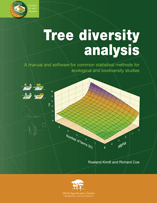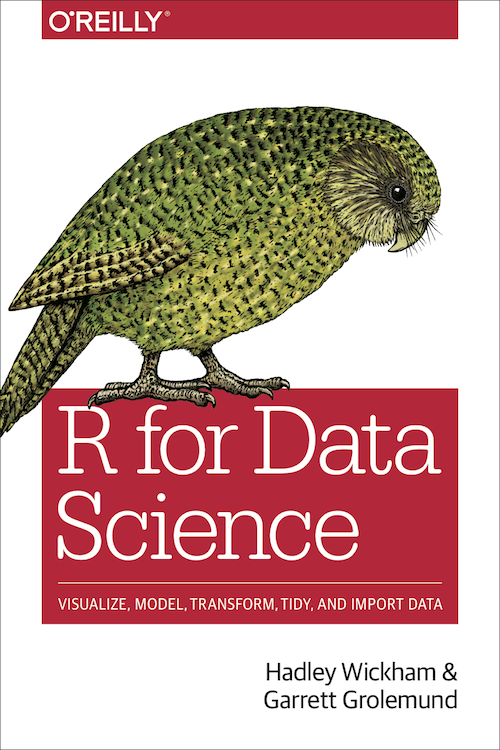Books
Tree Diversity Analysis
My introduction to using R for microbial community analysis was Tree Diversity Analysis by Roeland Kindt and Richard Coe and available from the World Agroforesty Centre as a free PDF file. It is the companion to the R package BiodiversityR. the third chapter, how to install the package, is out of date. BiodiversityR can now be installed fro CRAN like most other R packages. At least originally there was a GUI version, but I found it choked on the large data sets typical of microbial community analyses and do not use it.
I believe everyone can benefit from reading the first two chapters. The first is on the very important topic of sampling design, so read this chapter even if you are already familiar with other topics in the book. The second chapter is on data preparation, including how to check for errors and missing values. These need to be resolved early, otherwise garbage in garbage out, as the saying goes, and one could be misled by their results.
Subsequent chapters include analysis of species richness and diversity, regression of species counts on variables, presence/absence of species, ecological distance methods, clustering, and ordination (PCA, PCoA, NMDS). These chapters are good introductions to the methods, but if there is a downside, it is that there is not sufficient explanation regarding why to chose one (especially ordination) method over another. My next recommendation covers that problem (perhaps in overwhelming detail).
Numerical Ecology
I sometimes refer to Numerical Ecology by Pierre and Louis Legendre as the bible on statistical methods for ecological data and especially community analyses. It is mainly organized by task, giving several methods for each that the reader may compare. It provides detailed explanations with examples, and each chapter ends with a list of software to use for the tasks described. Many of these are various functions available in R packages. To my mind, its best feature is that it explains things in enough detail that the reader can understand how to choose the best method for a particular task. It is available from Amazon - click on image to the right.
Numerical Ecology with R
Numerical Ecology with R by Daniel Borcard, Francois Gillet, and Pierre Legendre is a practical companion to Numerical Ecology. It gives step-by-step examples of how to perform many of the analyses in Numerical Ecology with functions found in R packages. A must have, it is available from Amazon - click on image to the right.
practical computing for biologists
This book by Haddock and Dunn is practical because it is general. It is not about specific programs or operating systems. Instead, it explains how to do things, whether you use Windows, OS X, or Linux. I have found the first three sections covering manipulating text files, the shell, and an introduction to python programming, especially useful. I often have to reformat some aspect of text files or extract information from them. I can easily accomplish these tasks with what I have learned from this book. Available from Amazon - click on the image to the right.
R for Data Science
Everything you ever wanted to know about the tidyverse, and then some. If you like having physical books, it is available from Amazon, but even better it is available free as a continuously updated web version.
Web Resources
https://rseek.org/ is a search engine that finds only pages related to R. Find packages and functions related to your task at hand.
Having trouble with regular expressions? Try the on-line program at www.regex101.com. Paste your string in the Test String box, design your regex expression in the Regular Expression box. Identifies capture groups, too.
A Unix/Linux command reference from FOSSwire. Covers the most commonly used commands.
Use the on-line tool at https://html-color-codes.info/colors-from-image/ to pick html color codes from uploaded images. Handy for selecting a custom color palette for your plots.
Need a refresher for Docker commands? The "Ultimate Docker Cheat Sheet" can be found at https://dockerlabs.collabnix.com/docker/cheatsheet/.
tmux is a necessity for launching long-running jobs on AWS. You can find a cheat sheet of tmux commands at https://tmuxcheatsheet.com/.





